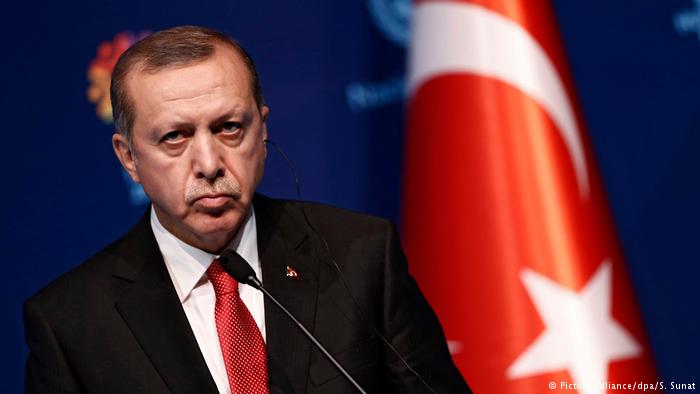FRESH AIR
UPDATES
Post-referendum, Turkey’s Erdogan employs his new powers in ugly ways
May 11, 2017 | Shmuel Levin

In April, a contested referendum saw Turkey pass into law a new draft constitution that significantly increases the powers of its President, Recep Tayyip Erdogan. (For more on how the referendum seems to have fundamentally transformed Turkey politically, see Amotz Asa-El in the latest AIR.) Now, one month later, Erdogan may be unleashing those powers.
As reported US-based Turkish writer Uzay Bulut:
Just a few hours after the commemoration of the 102nd anniversary of the Armenian Genocide on April 24, 2017, Turkish warplanes dropped bombs on the Yazidi homeland of Sinjar (Shingal) on April 25, at around 2 AM local time, according to reports from the region.
The strikes reportedly killed at least 70 people in the area, with one bomb hitting a Kurdish peshmerga post in Sinjar, killing at least five and severely wounding several more.
Yazidis say they have been subjected to 72 genocidal massacres. The latest genocide, committed by ISIS, is the 73rd and is still going on. Tens of thousands of Yazidis have been displaced and are refugees in several countries. Hundreds of Yazidi girls and women are still bought, sold and raped by ISIS terrorists — the same men who murdered their husbands and fathers…
In the face of ISIS attacks, Yazidis formed defense forces. Turkish officials apparently consider these groups “terrorists.” The general staff of the Turkish armed forces issued a statement concerning the airstrikes, saying “operations will continue until the terrorists have completely been eliminated.”
Elsewhere, Erdogan provoked a fresh conflagration with Israel.
Last June, Turkey and Israel formally reconciled after six years of estrangement, and officials “made every effort to avoid commenting on the affairs of the other”.
However, in what has been described as the end of the “mini-honeymoon period”, Erdogan launched a string of attacks on Israel in a speech given on Monday. Erdogan called Israel “racist and discriminatory” and stated that the Israeli occupation of Jerusalem was “an insult to us” before adding Turkey “attaches great importance to the justified resistance of the Palestinians” in Jerusalem. He also said Israel’s blockade of Gaza “has no place in humanity.”
In response, Israel’s Foreign Ministry tweeted:
“On Turkey’s Pres remarks: Those who systematically violate human rights in their own country shouldn’t preach to region’s only true democracy”
And, in regards to Jerusalem, Israel’s President Reuven Rivlin, whose family has lived in Jerusalem since 1809, responded by stating that “for the last 150 years there has been a Jewish majority in Jerusalem. Even under the Ottoman Empire there was a Jewish majority in Jerusalem.”
Explaining Erdogan’s antics
As reported by al-Monitor, scholars have offered various explanations for Erdogan’s latest attacks.
According to Selin Nasi, “even though the [presidential] referendum is over, the government acts as if it is still in an election mode. Escalating tensions … might be a strategy to mobilize domestic support and thus to lay the ground for snap elections before 2019”.
Additionally, according to Gabriel Mitchell, Turkey “wants to maintain and expand its role in regional problems beyond the civil war in Syria.” As such, the remarks may also have been timed to coincide with US President Donald Trump’s upcoming visit to the region.
The remarks also preceded a meeting between Erdogan and Palestinian official Rami Hamdallah, and follow the appointment of new Hamas leader Ismail Haniyeh.
These scholars predict that the reconciliation between Israel and Turkey is unlikely to be halted completely at the moment. Notwithstanding the latest spat, the circumstances underpinning the original rapprochement still exist, and the two countries are expected to conclude an energy deal in the coming months.
Turkey’s Jewish community
According to a number of reports, Erdogan’s antics are making Turkey increasingly unsafe for its minority communities, including Yezidis, Christians, and Jews.
In 2003, two Istanbul synagogues were bombed, killing 27 and injuring 300. Since them, security has been ramped up dramatically. For visitors seeking to visit Istanbul’s Bet Yisrael Synagogue, access comes “through two bomb-vault doors and a metal detector, weeks after presenting their passports for a security clearance”. In addition, each seat in is equipped with a helmet underneath.
More recently, in 2015, it was reported that ISIS had “advanced plans” to attack Jewish schools and kindergartens in Turkey, and 3 Israelis were amongst those killed in a terror attack in central Istanbul. Israel has also issued several travel advisories strongly urging its citizens to avoid Turkey because of imminent threats.
In turn, over the last 15 months, “close to 4,700 Turkish Jews applied for or received passports from Spain, Portugal and Israel. When children of applicants to Spain are added in, the number balloons to over 6,200.” Whilst there is no mass exodus underway, these numbers are concerning for a community of approximately only 16,000.
In addition, over 74 Turkish Jews moved to Israel between January and March of 2017 and 220 moved to Israel in 2016. This was double the amount in 2015, and the largest increase from any country in percentage terms.
Turkey’s Jewish community has a strong connection to Turkey, and community members describe leaving as a “last resort”. But the community also maintains a strong connection to Israel, with many having friends and relatives living in Israel.
For now, it seems that the community is adopting a “wait-and-see attitude” as the effects of the referendum continue to unfold, but many are preparing for quick exit if one is needed.
Shmuel Levin
Tags: Israel
RELATED ARTICLES

US Middle East strategy amid regional instability: Dana Stroul at the Sydney Institute

Antisemitism in Australia after the Bondi Massacre: Arsen Ostrovsky at the Sydney Institute





















